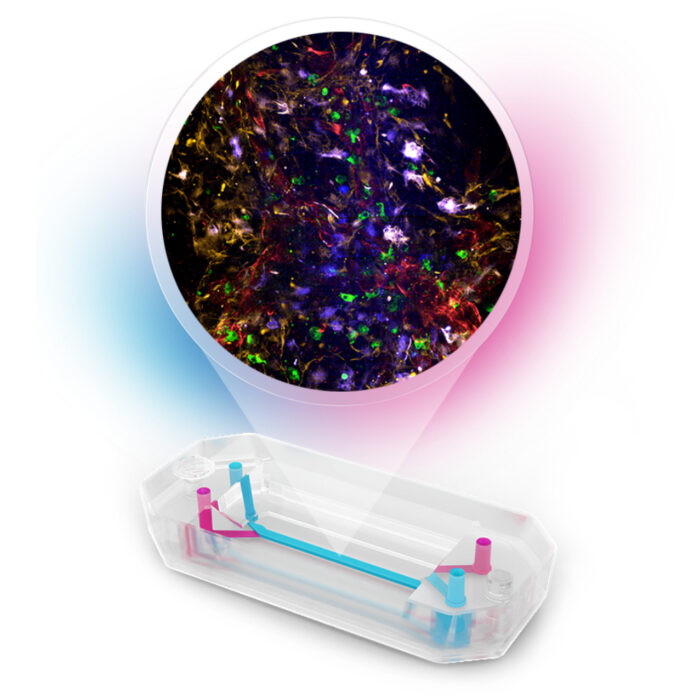BOSTON, Mass. — Emulate, Inc., a leader in next-generation Organ-on-a-Chip technology, has announced the launch of the Brain-Chip R1, a novel isogenic model of the human neurovascular unit developed in partnership with FUJIFILM Cellular Dynamics, Inc., a global innovator in human induced pluripotent stem cell (iPSC) technology. The Brain-Chip R1 provides researchers with a highly human-relevant platform for studying drug transport across the blood-brain barrier (BBB) and exploring mechanisms of neuroinflammation.
The Brain-Chip R1 integrates FUJIFILM Cellular Dynamics’ iCell® products—neurons, microglia, astrocytes, and pericytes—with Emulate’s proprietary induced Brain Microvascular Endothelial Cells (BMECs). This combination recreates the structure and function of the neurovascular unit within a dynamic, fluidic microenvironment, offering researchers an unprecedented opportunity to evaluate central nervous system (CNS) drug candidates and investigate disease mechanisms with greater accuracy.
“The Brain-Chip R1 provides researchers with an innovative platform to model the complexities of the neurovascular unit,” said Dr. Lorna Ewart, Chief Scientific Officer at Emulate. “By integrating cutting-edge iPSC-derived cells from FUJIFILM Cellular Dynamics with the dynamic microenvironment of our Organ-Chips, researchers can evaluate drug transport and inflammatory mechanisms with unprecedented human relevance.”
CNS diseases such as Alzheimer’s and Parkinson’s affect tens of millions worldwide, yet the brain’s protective BBB presents a major obstacle to drug development. More than 99 percent of potential CNS therapies fail, often due to limitations in traditional preclinical models. Animal models and static cell cultures lack the physiological complexity needed to replicate human BBB function, resulting in poor clinical translation.
The Brain-Chip R1 addresses these challenges by integrating five isogenic human iPSC-derived cell types—alongside proprietary BMECs—into a system that replicates key aspects of the neurovascular unit, including barrier tightness, transporter expression, and glial regulation. The platform’s ready-to-use cells and proprietary culture media streamline workflows, reduce variability, and deliver more robust and reproducible data, enhancing confidence in clinical translation.
The product is the result of a strategic collaboration between Emulate and FUJIFILM Cellular Dynamics, combining Emulate’s Organ-on-a-Chip expertise with FUJIFILM Cellular Dynamics’ scalable and reliable iPSC manufacturing capabilities.
“Our iCell human iPSC-derived products provide unmatched consistency and the scalability needed to build microphysiological systems for discovery research,” said Tomoyuki Hasegawa, President and Chief Executive Officer of FUJIFILM Cellular Dynamics, Inc. “By partnering with Emulate, we’ve created a system that empowers researchers to overcome the limitations of traditional models and accelerate neurological drug discovery.”
The Brain-Chip R1 is designed to help pharmaceutical researchers advance CNS drug development by enabling more predictive modeling of drug transport, neuroinflammation, and disease mechanisms within a physiologically relevant environment.



